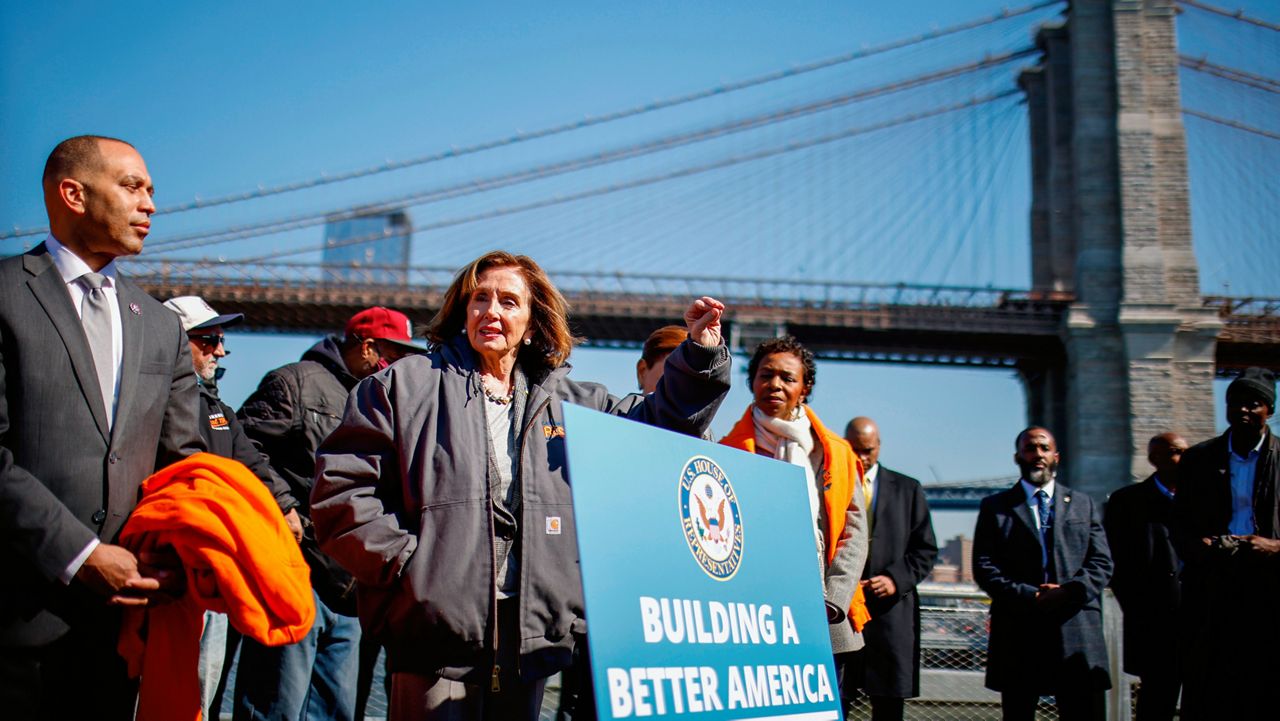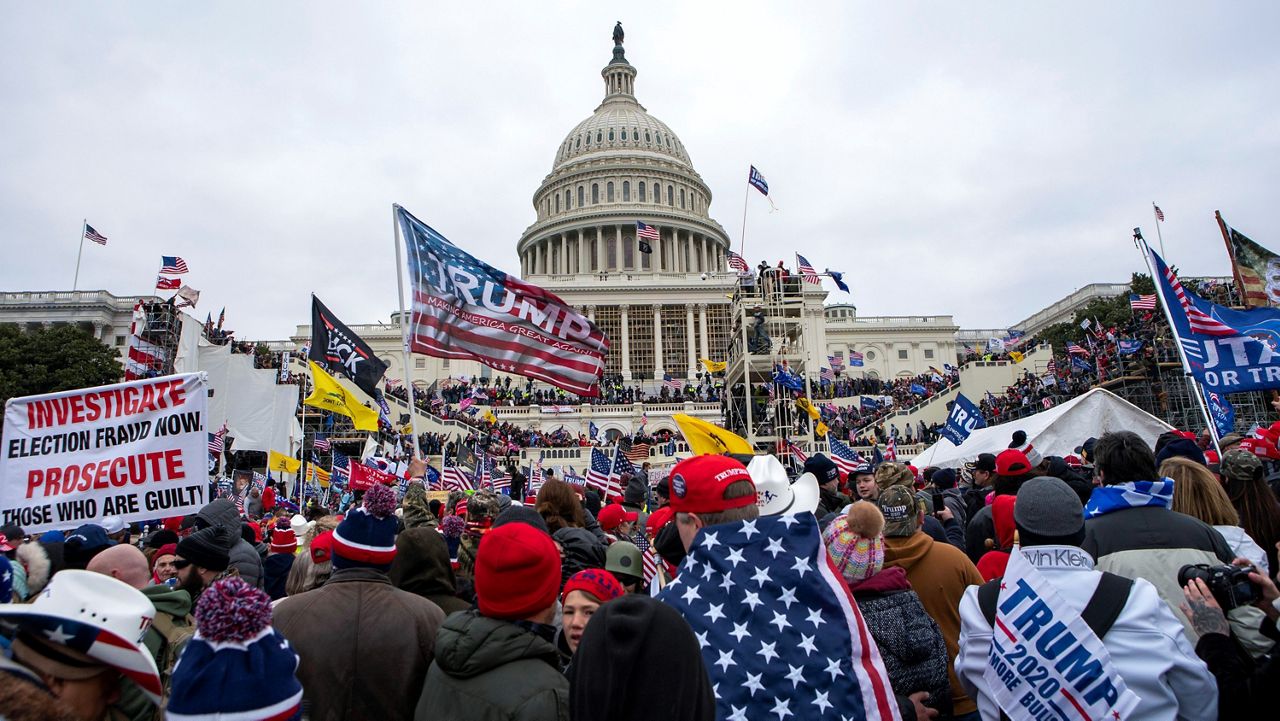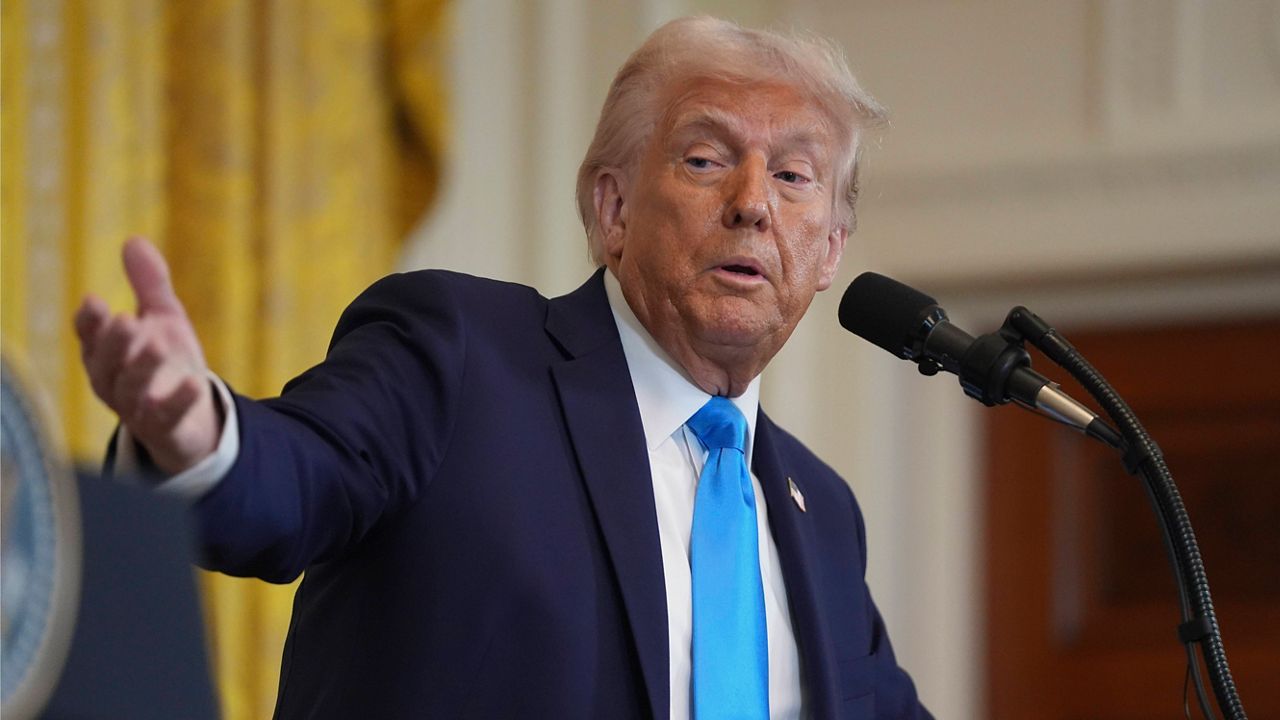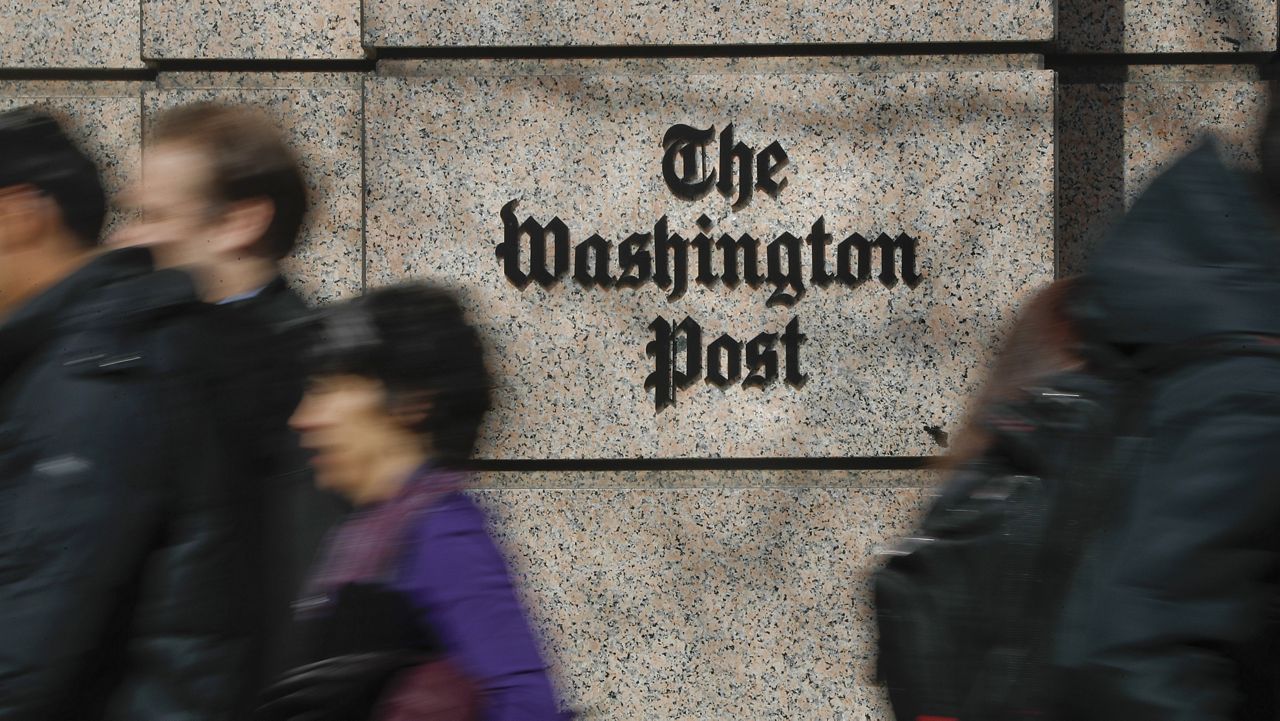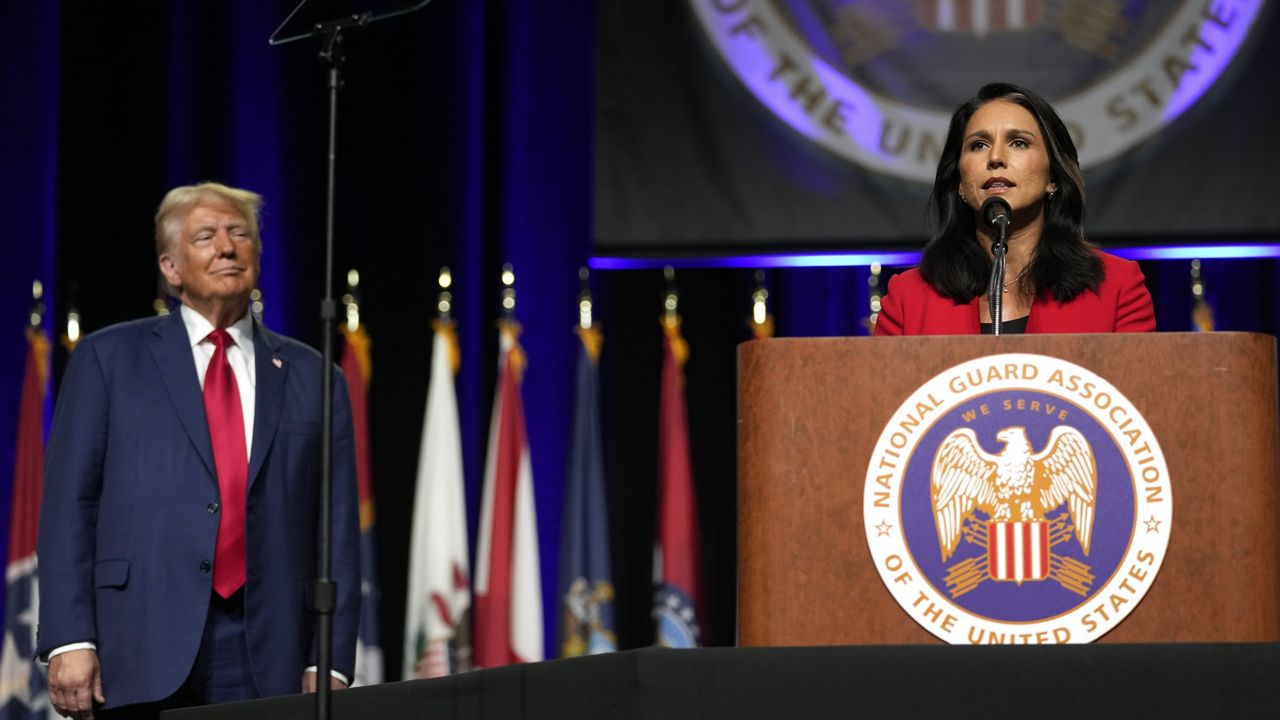On a cool March morning at New York’s Brooklyn Bridge Park, overlooking the lower Manhattan skyline, four House Democrats — including their leader, House Speaker Nancy Pelosi, D-Calif. — gathered with labor leaders to to hail the passage of the $1.2 trillion bipartisan infrastructure law and celebrated the funding it will bring to New York, as well as across the country.
According to the White House, under the bill, formally known as the Infrastructure Investment and Jobs Act, New York will receive $10 billion for public transit, $13.5 billion for highways and bridges, $685 million for airports, $175 million for new electric vehicle charging stations, $100 million to help provide broadband coverage across the state and $2.6 billion to improve water infrastructure.
“It’s a remarkable bill because it’s not only built on infrastructure needs, but it’s built on justice and fairness and values,” Pelosi said, noting that the bill not only will fix ailing roads and bridges and create “good-paying jobs,” but will also address safety and environmental justice.
“We're improving the health of our children, when we're building infrastructure,” Pelosi said. “So it's about the quality of life, the quality of our infrastructure.”
House Democrats have held more than 1,000 events across the country related to the infrastructure bill, which will provide funding to fix roads and bridges, as well as expand broadband access and electric vehicle charging infrastructure, in order to tout their accomplishments ahead of the 2022 midterm elections.
Democrats are hoping to build on their majority in Congress, bolstered largely by the infrastructure bill and a historic jobs recovery under President Joe Biden, despite headwinds on a number of issues, including rising inflation. At the House Democratic Caucus Issues Conference in Philadelphia last week, President Biden urged Democrats to adjust their messaging on the party’s accomplishments.
“The American people just trying to stay above water don’t understand this,” Biden said. “You tell them what the American Recovery Act was, and they look at you like, ‘What are you talking about?’ Understandably. They’re like my family: mom, dad, four kids, grandpop living in the house in a three-bedroom split-level home. Just every single day figuring out how you put enough food on the table even when things are okay.”
“The simple fact is: This Infrastructure Bill is going to transform America,” Biden said of the $1.2 trillion bill. “I mean, not figuratively, literally transform America. And it’s already starting. Instead of having ‘Infrastructure Week,’ we have an ‘Infrastructure Decade’ we voted for.”
In Brooklyn on Monday, the House Democrats seemed to do just that, laying out how the bill will change the lives of their constituents and beyond.
Standing in the shadow of the Brooklyn Bridge, Rep. Nydia Velázquez, whose district covers a large swath of the western Brooklyn waterfront, pointed out the nearby crumbling infrastructure that the bill will seek to repair — including the crumbling “triple cantilever” section of the Brooklyn-Queens Expressway, and the lingering damage from 2012’s Superstorm Sandy, which ravaged the New York area.
“This is a legacy for working people today, but it is a legacy for future generations,” Velázquez said of the bill’s environmental provisions.
“It will invest $2.6 billion over five years for New York to improve water infrastructure across the state and ensure clean, safe drinking water is a right in all communities,” she said, adding: “I am proud that the bipartisan infrastructure bill will strengthen our nation's resilience to extreme weather and climate change, clean up toxic pollution, expand access to clean drinking water, remediate legacy pollution, deliver electric buses to schools and support clean air, and more. And it does all this with a focus on environmental justice.”
Rep. Clarke, whose Brooklyn district stretches all the way from Prospect Park in the north to Sheepshead Bay in the south, hailed the bill’s $65 billion to improve access to reliable high-speed internet for all Americans.
“When I think about the fact that broadband has not been ubiquitous across this nation, now is the time,” Clarke said. “We understand during this pandemic, that there were so many who were unable to jump to remote learning, to telehealth and to the things that we needed to connect ourselves during the time of shutdown.”
“Well, no more,” she added. “We are making those investments through the Bipartisan Infrastructure bill.”
The Democratic lawmakers also emphasized that they are not done with their legislative accomplishments ahead of the midterms, and looked toward the new version of President Biden’s Build Back Better social spending and climate change bill.
“We have much more to do, and as you heard in the President’s State of the Union Address, we are not we are not done legislating,” Velázquez said.
“I don't need to remind you of the litany of challenges that Brooklynites have faced this past year,” Clarke said. “Economic instability, healthcare crisis and the pandemic only scratches the surface of the struggles of some of our neighbors.”
“While much necessary work remains ahead on our horizons, I am proud to say a page has turned in our ceaseless pursuit of progress from the climate resilient infrastructure projects that are now possible through the funding, to the rejuvenated bridges, roads and tunnels that fundamentally revitalize communities,” she added.
Pelosi, addressing the union leaders gathered, touted what they hope to accomplish for women in the workforce.
“What we'll do in our next bill is to ensure that many more women have the opportunity,” Pelosi said, “Because of improvements in lowering the cost of childcare and and affording people the opportunity to have health care at home. so that moms and dads can be at work, and universal pre-K and all the things that enable many more women to take their rightful place in the building trades.”




